15 Iconic Journalism Films Aspiring Writers Must Watch
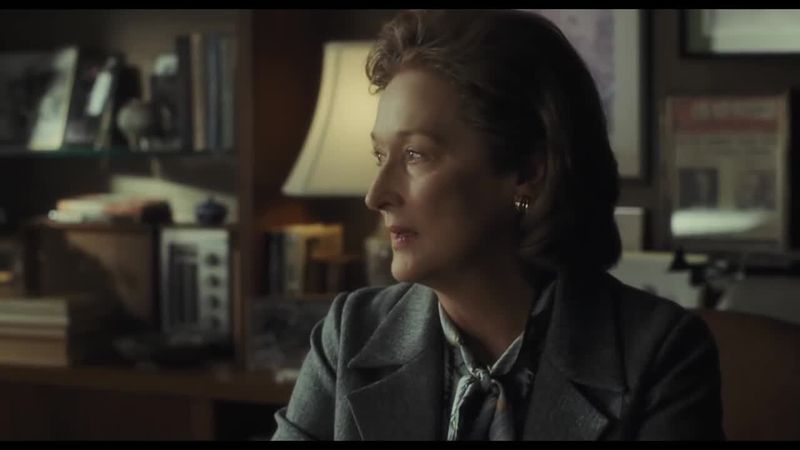
Journalism has long been a core pillar of democratic society, capturing the essence of truth, integrity, and the relentless pursuit of justice. Films that highlight the world of journalism offer a compelling look into the lives of reporters and editors dedicated to uncovering and reporting the truth, often amidst great adversity. These films not only entertain but also educate, providing insights into the ethical dilemmas and challenges faced by journalists. For aspiring writers, these stories can serve as both inspiration and a cautionary tale, showcasing the power of the pen and the responsibilities that come with wielding it.
1. All the President’s Men (1976)
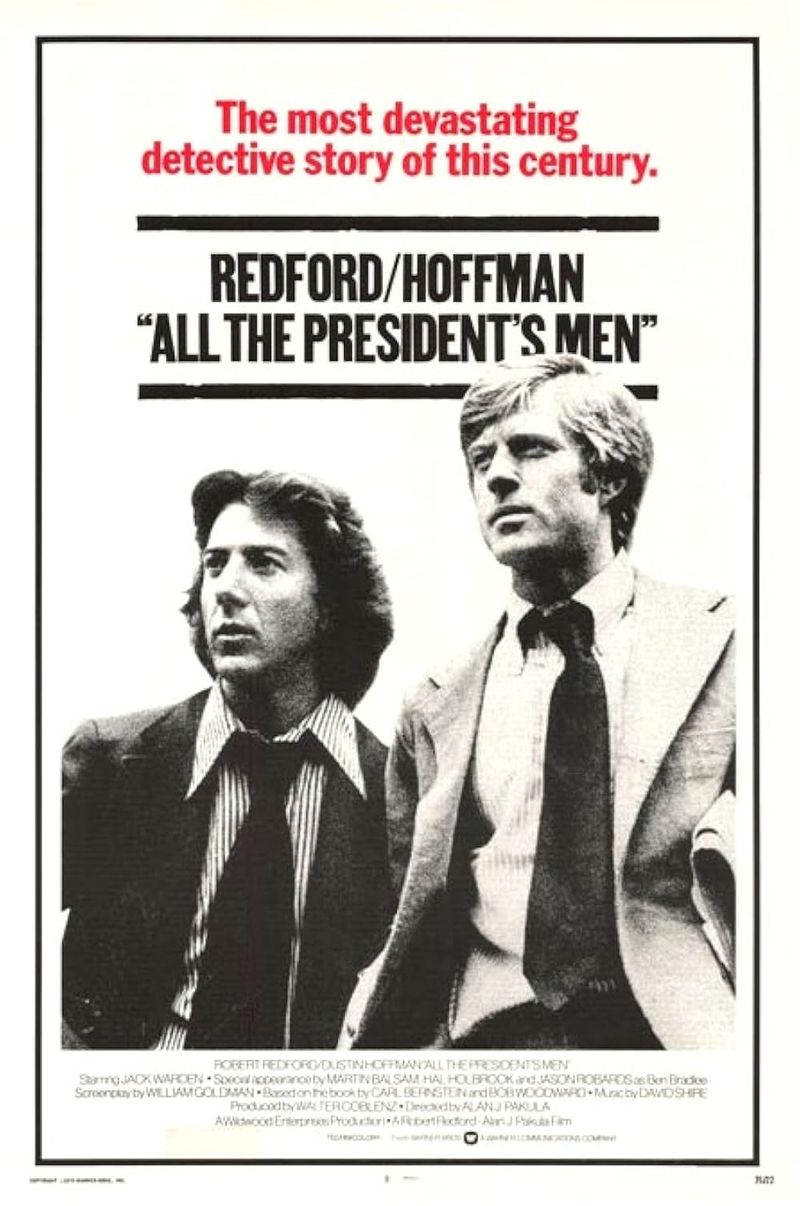
In the heart of Washington D.C., two journalists found themselves at the center of one of the biggest political scandals in history. Bob Woodward and Carl Bernstein, reporters for The Washington Post, pursued the truth with an unwavering commitment. Their investigation into the Watergate scandal uncovered a web of corruption that led to President Nixon’s resignation.
The film is a gripping portrayal of investigative journalism at its finest. It highlights the dogged determination required to seek out the truth, even when faced with powerful adversaries. A true testament to the impact journalism can have in shaping history.
2. Spotlight (2015)
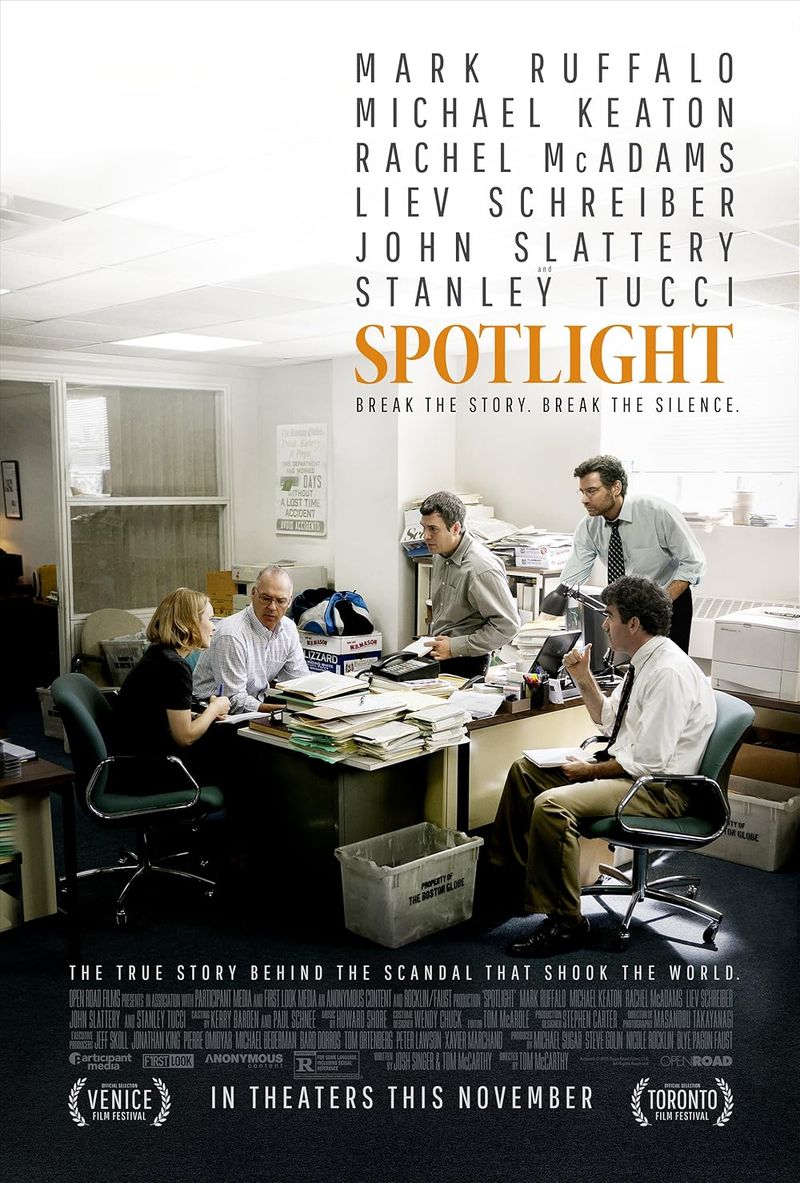
In 2001, The Boston Globe’s ‘Spotlight’ team unearthed a shocking pattern of systemic child abuse within the Catholic Church. This film chronicles their painstaking investigation, which ultimately led to a Pulitzer Prize-winning exposé.
Every step taken by the tenacious team is meticulously portrayed, highlighting the crucial role investigative journalism plays in society. The emotional depth of the story is matched by its rigorous attention to journalistic detail, offering an unflinching look at the power of the press.
‘”Spotlight” serves as a powerful reminder of the importance of holding institutions accountable.
3. The Post (2017)
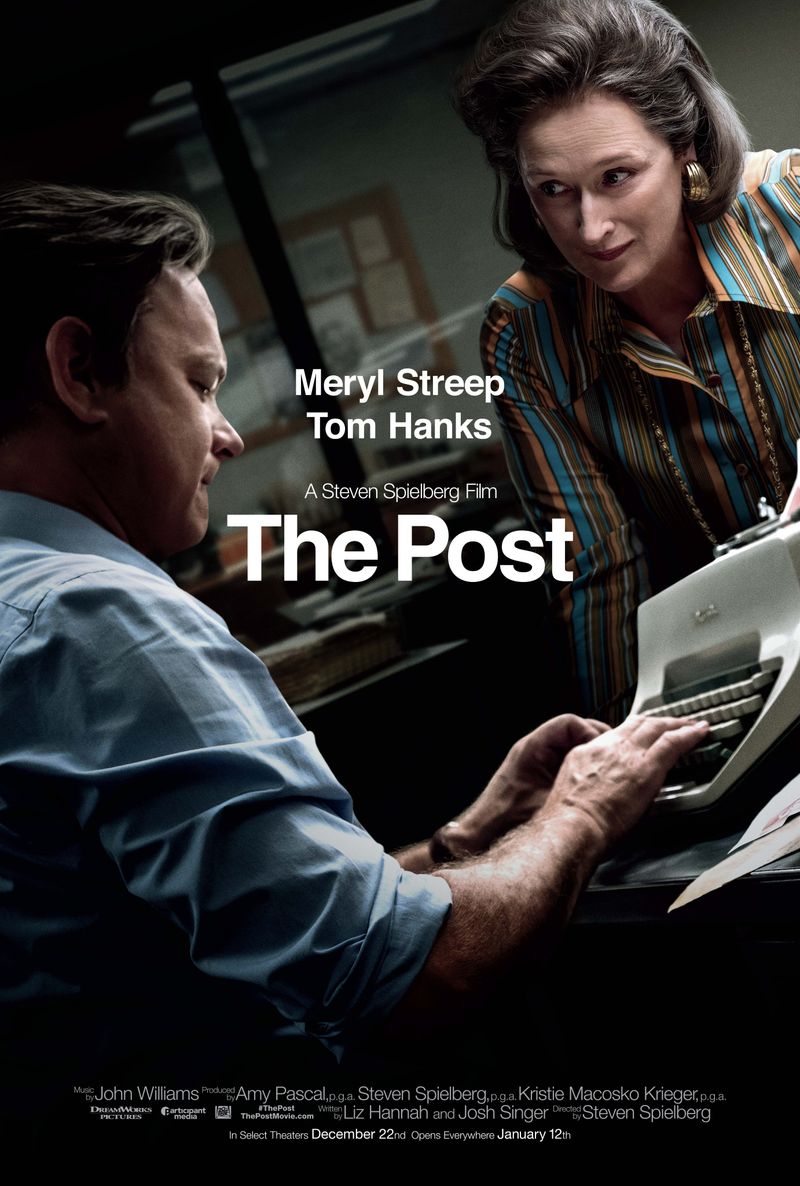
Set during a tumultuous time, “The Post” brings to life the story of Katharine Graham, the first female publisher of The Washington Post, as well as her editor, Ben Bradlee. Together, they face the daunting decision of whether to publish the Pentagon Papers.
This film captures the essence of courage and leadership in journalism. The narrative delves into issues of press freedom, highlighting the critical role the media plays in maintaining governmental transparency. With its stellar performances, “The Post” is a tribute to the bravery required to uphold the truth, even under immense pressure.
4. Citizen Kane (1941)
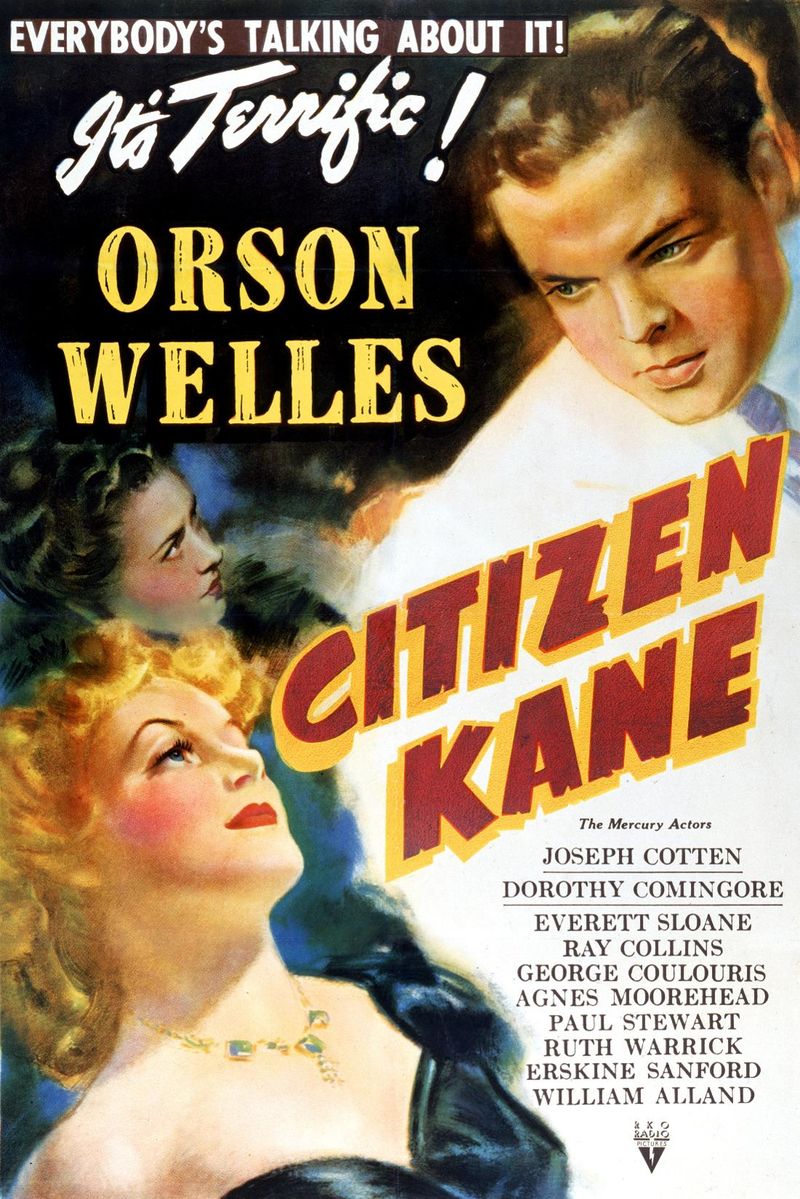
Celebrated as one of the greatest films of all time, “Citizen Kane” explores the life of Charles Foster Kane, a media magnate whose passion for power and control leads to his downfall. Through a series of flashbacks, the film unravels Kane’s life, revealing the impact of his decisions on those around him.
The film’s innovative storytelling techniques and deep thematic exploration make it a cornerstone of cinematic history. “Citizen Kane” offers a compelling examination of truth, ambition, and the human condition, resonating with audiences even decades after its release.
5. Network (1976)
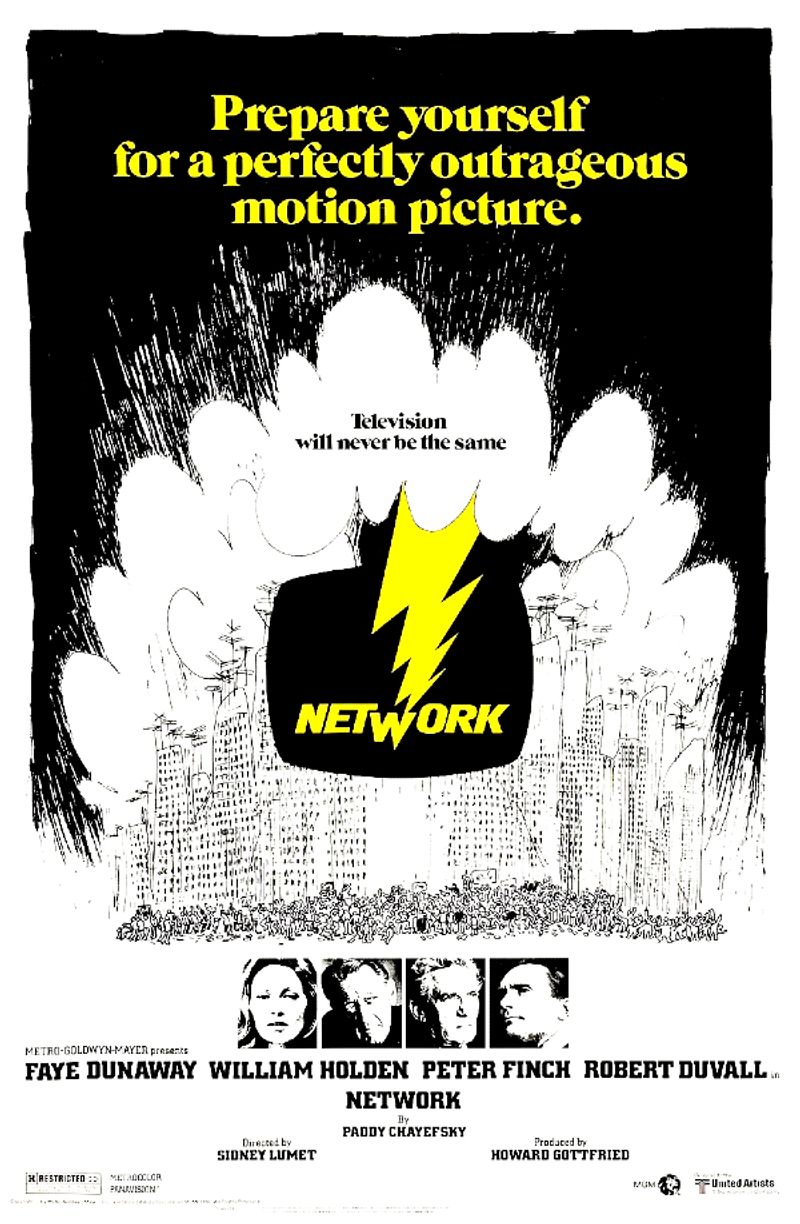
In a scathing critique of the television industry, “Network” delves into the sensationalism that defines modern media. The film follows Howard Beale, a news anchor who, driven to the brink, becomes a voice of outrage and madness on his network.
“Network” is both darkly comedic and hauntingly prescient, examining the blurred lines between news and entertainment. The narrative probes the ethical dilemmas faced by media professionals, challenging viewers to reflect on the media’s role in shaping public perception.
The film remains a powerful commentary on the pursuit of ratings over truth.
6. Good Night, and Good Luck (2005)
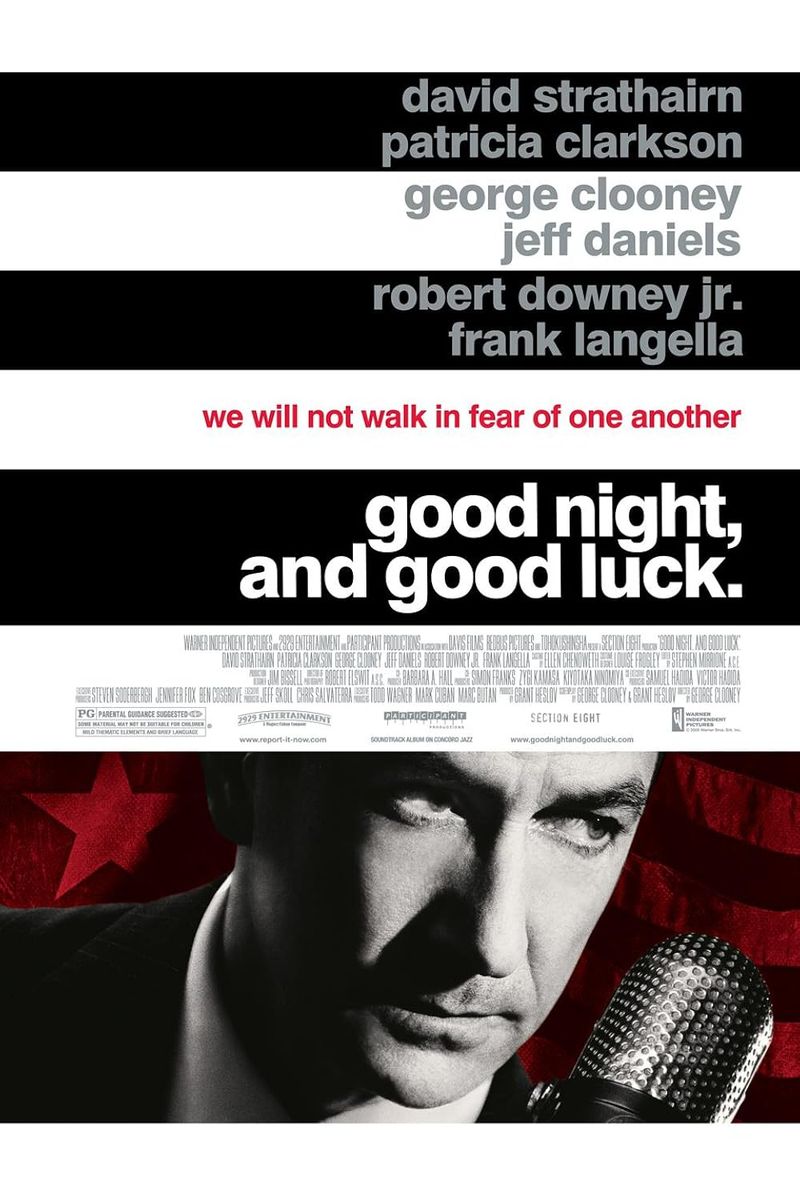
Set in the 1950s, “Good Night, and Good Luck” follows the courageous efforts of broadcast journalist Edward R. Murrow as he confronts Senator Joseph McCarthy’s anti-Communist witch hunt. Murrow’s unwavering commitment to truth and integrity is at the film’s core.
Shot in black and white, the film captures the somber mood of the era, offering a powerful depiction of the media’s role in challenging authority. It serves as a reminder of the importance of journalistic courage in the face of governmental overreach.
This film is a tribute to those who prioritize truth over fear.
7. Shattered Glass (2003)
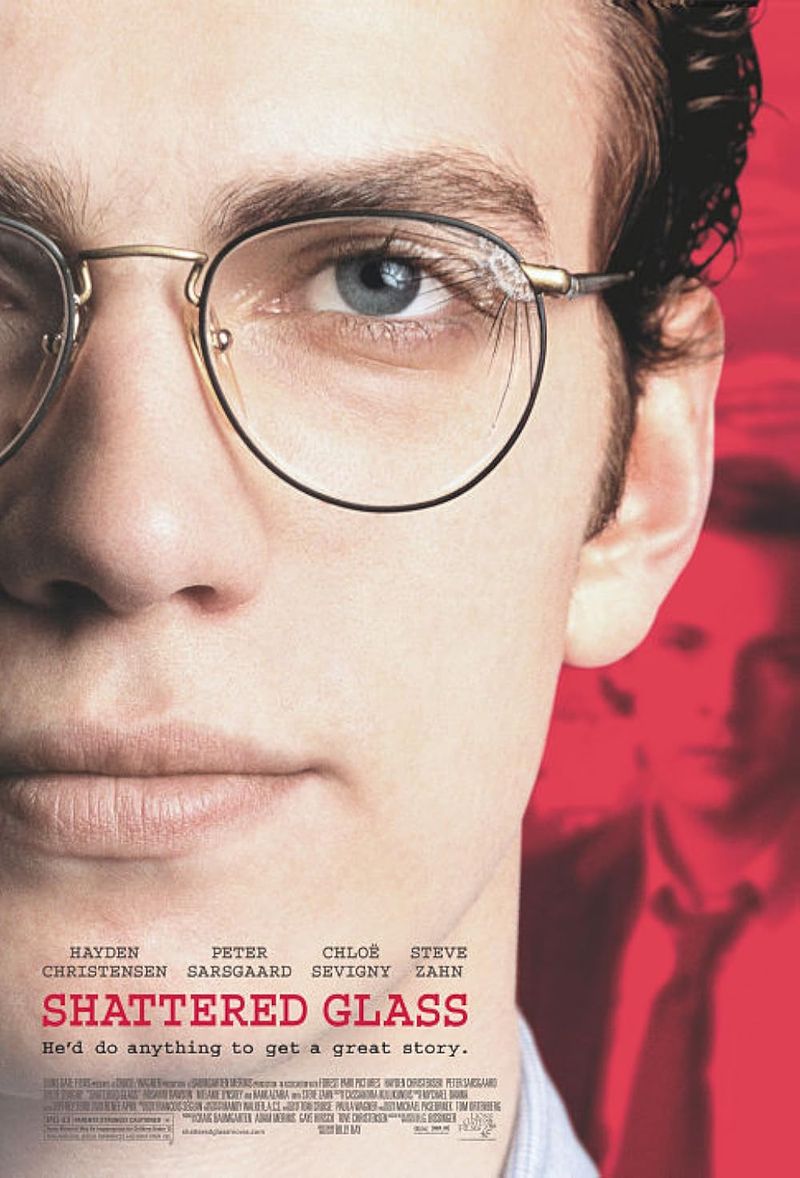
“Shattered Glass” recounts the true story of Stephen Glass, a young journalist at The New Republic whose fabricated articles nearly destroyed the magazine’s credibility. The film intricately portrays the seductive allure of storytelling and the ethical pitfalls that can accompany ambition.
Through its compelling narrative, the film examines issues of trust, integrity, and the boundaries of creative license in journalism. “Shattered Glass” is a sobering reminder of the responsibility that comes with wielding the power of the written word.
This film serves as a cautionary tale for aspiring journalists.
8. Zodiac (2007)
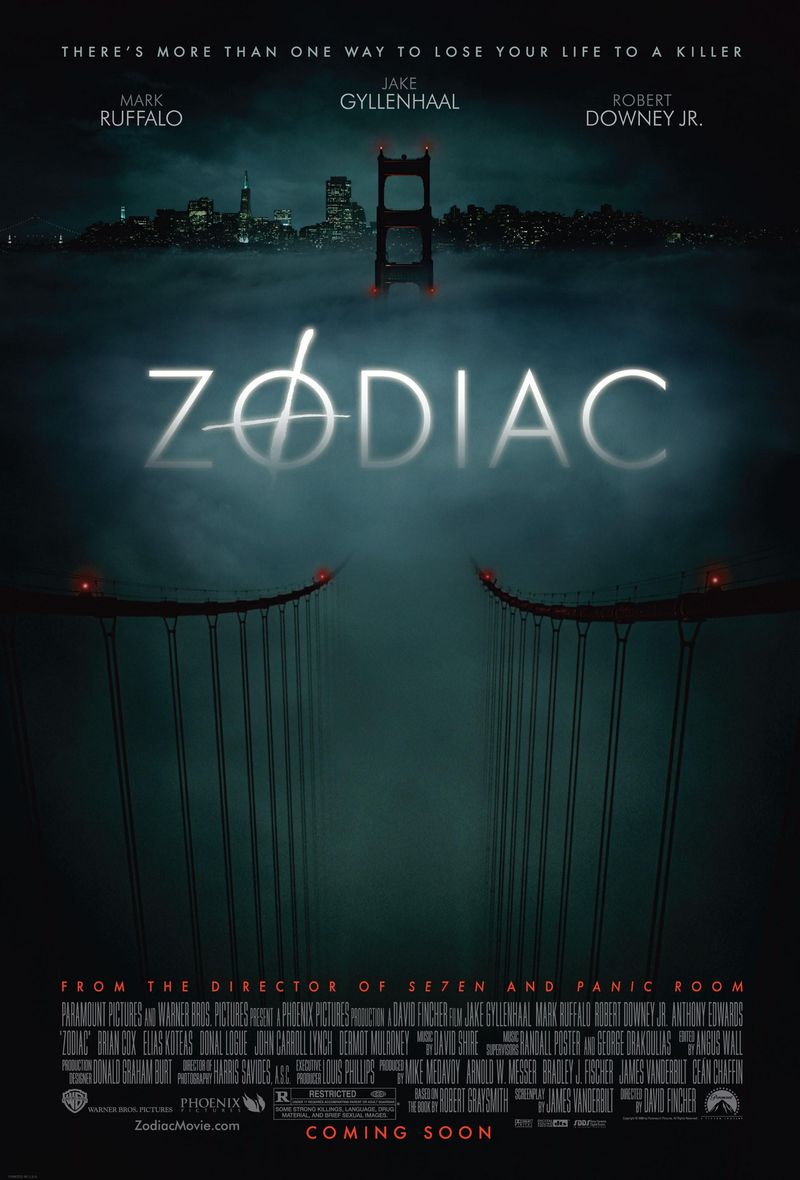
“Zodiac” is a gripping thriller that chronicles the hunt for the notorious Zodiac killer, who terrorized the San Francisco Bay Area during the late 1960s and early 1970s. The film follows journalists and detectives as they unravel the mystery through cryptic clues and letters.
With meticulous attention to detail, the film immerses viewers in the tension and paranoia of the era. “Zodiac” explores the relentless pursuit of truth, even when faced with the unknown.
The film’s atmospheric tension and complexity make it a fascinating study of obsession and dedication to justice.
9. Frost/Nixon (2008)
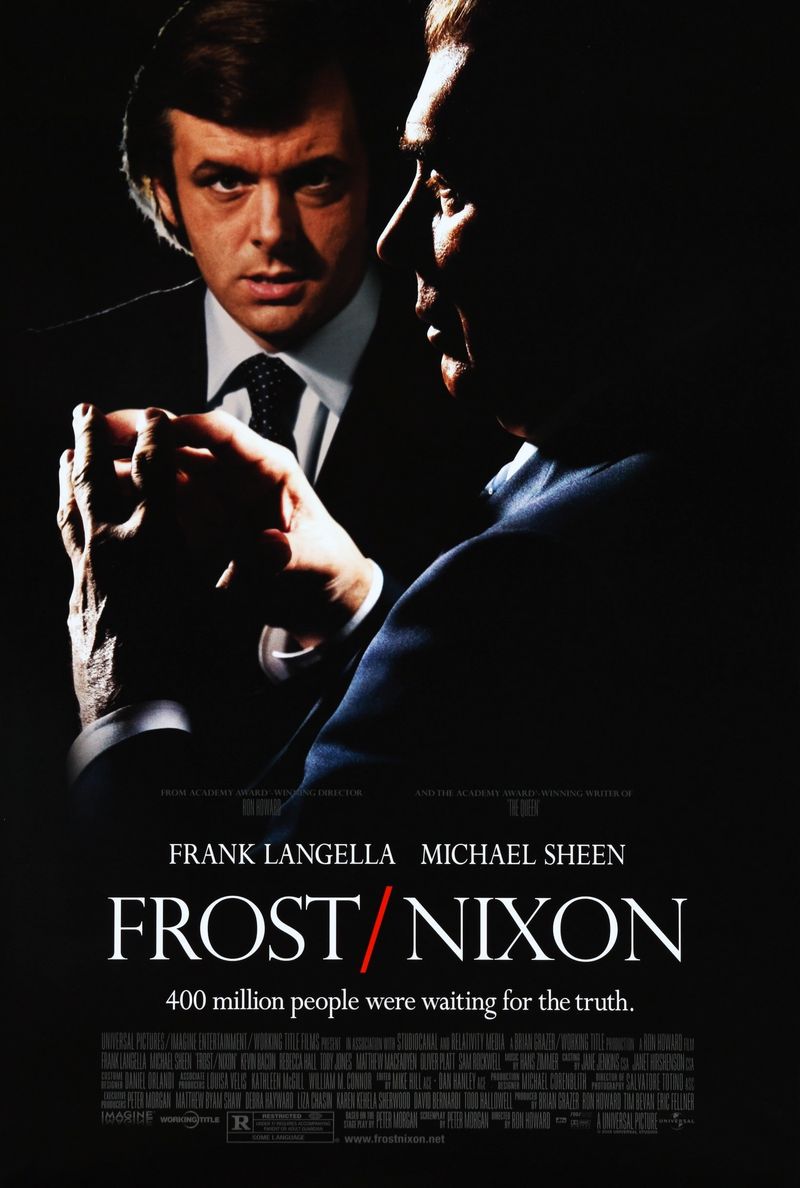
“Frost/Nixon” dramatizes the post-Watergate television interviews between British journalist David Frost and former U.S. President Richard Nixon. The film showcases Frost’s determination to extract a confession from Nixon about his involvement in the scandal.
The film builds a riveting narrative around the intense psychological battle between interviewer and interviewee. It highlights the power of journalism in holding public figures accountable and the meticulous preparation required for such a high-stakes encounter.
This film is a testament to the impact a single interview can have on public perception and history.
10. Absence of Malice (1981)
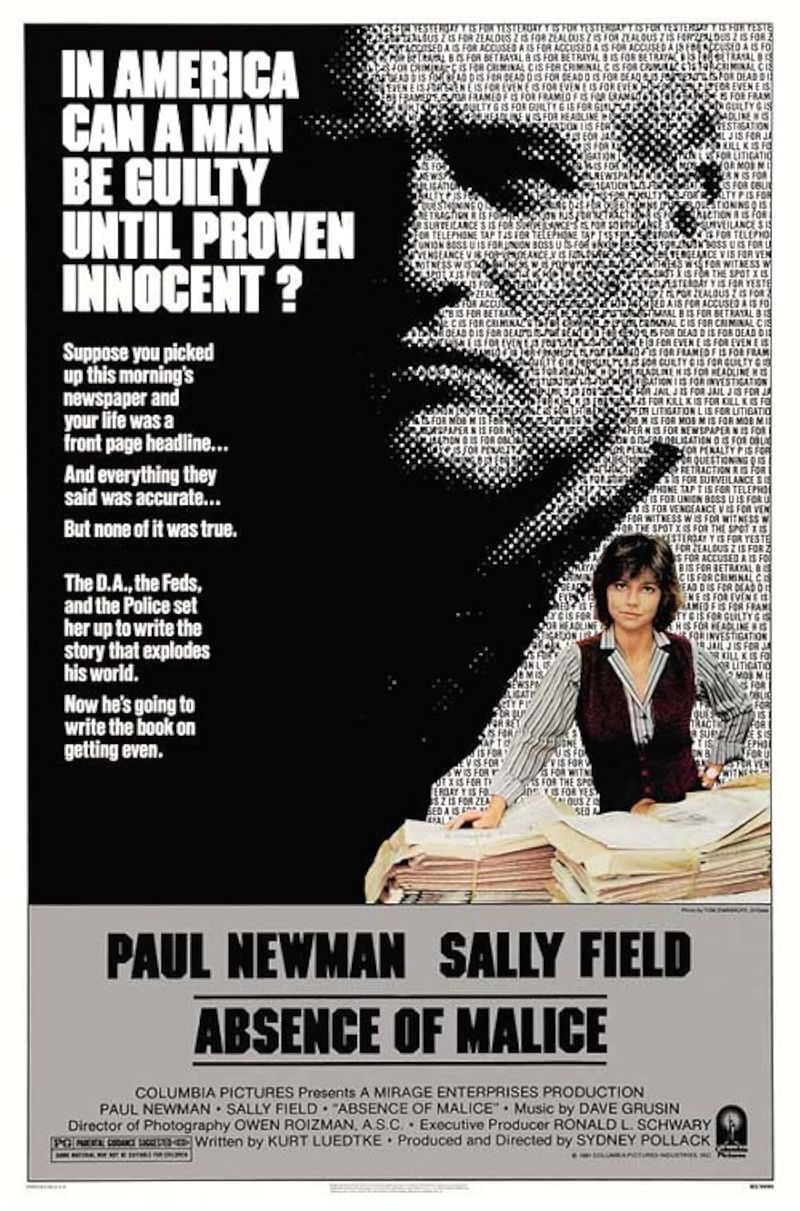
In “Absence of Malice,” a journalist’s decision to publish a potentially damaging story without full context sets off a chain of events that explores the ethical complexities of journalism. The film examines how the media can impact personal lives and reputations.
Through its thought-provoking narrative, the film challenges viewers to consider the balance between public interest and ethical responsibility. It delves into the consequences of media actions, underscoring the importance of accountability and integrity.
This film serves as a reminder of the weight that journalists’ decisions can carry.
11. The Killing Fields (1984)
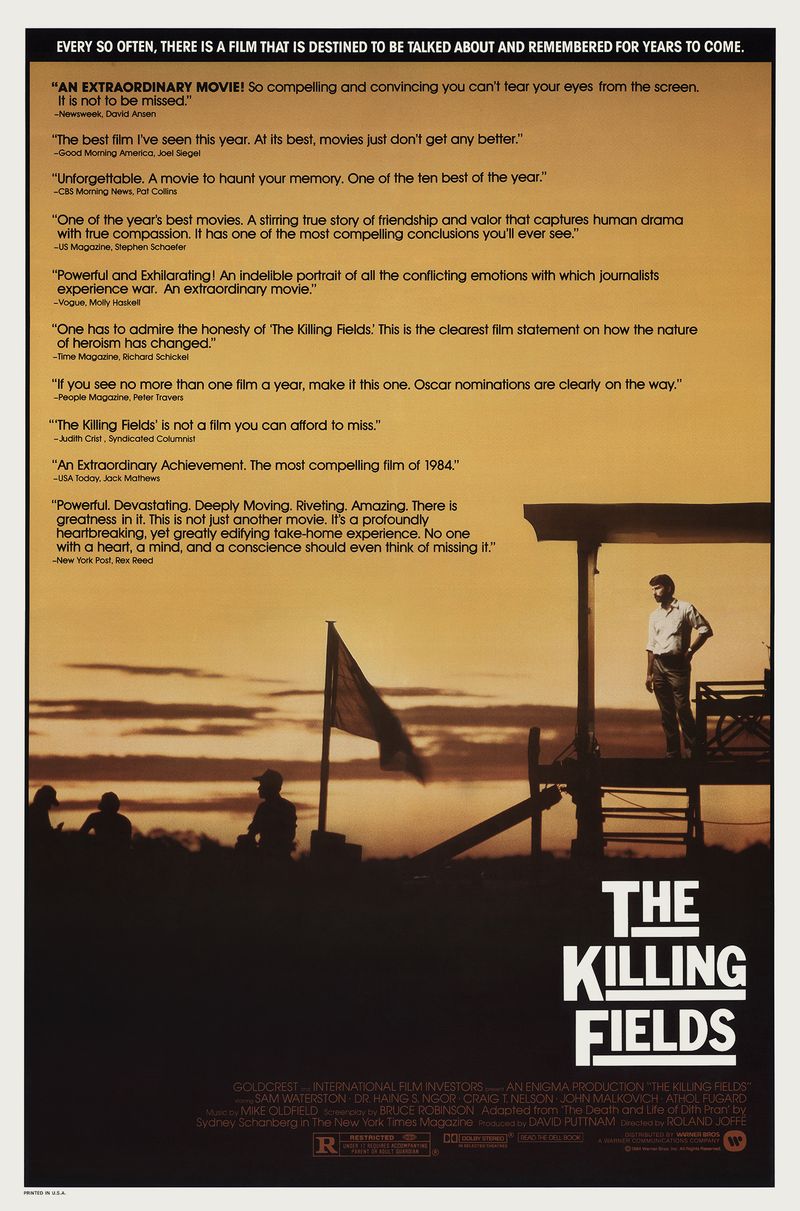
“The Killing Fields” is a powerful portrayal of journalists covering the Cambodian genocide during the Khmer Rouge regime. The film follows New York Times journalist Sydney Schanberg and his Cambodian assistant, Dith Pran, as they navigate the brutal conflict.
The film captures the profound risks journalists face in war-torn regions, highlighting their courage and the personal sacrifices they make in pursuit of truth. Through its harrowing storytelling, “The Killing Fields” offers a sobering look at the human cost of war.
This film stands as a tribute to journalists who bear witness to history’s darkest moments.
12. The Year of Living Dangerously (1982)
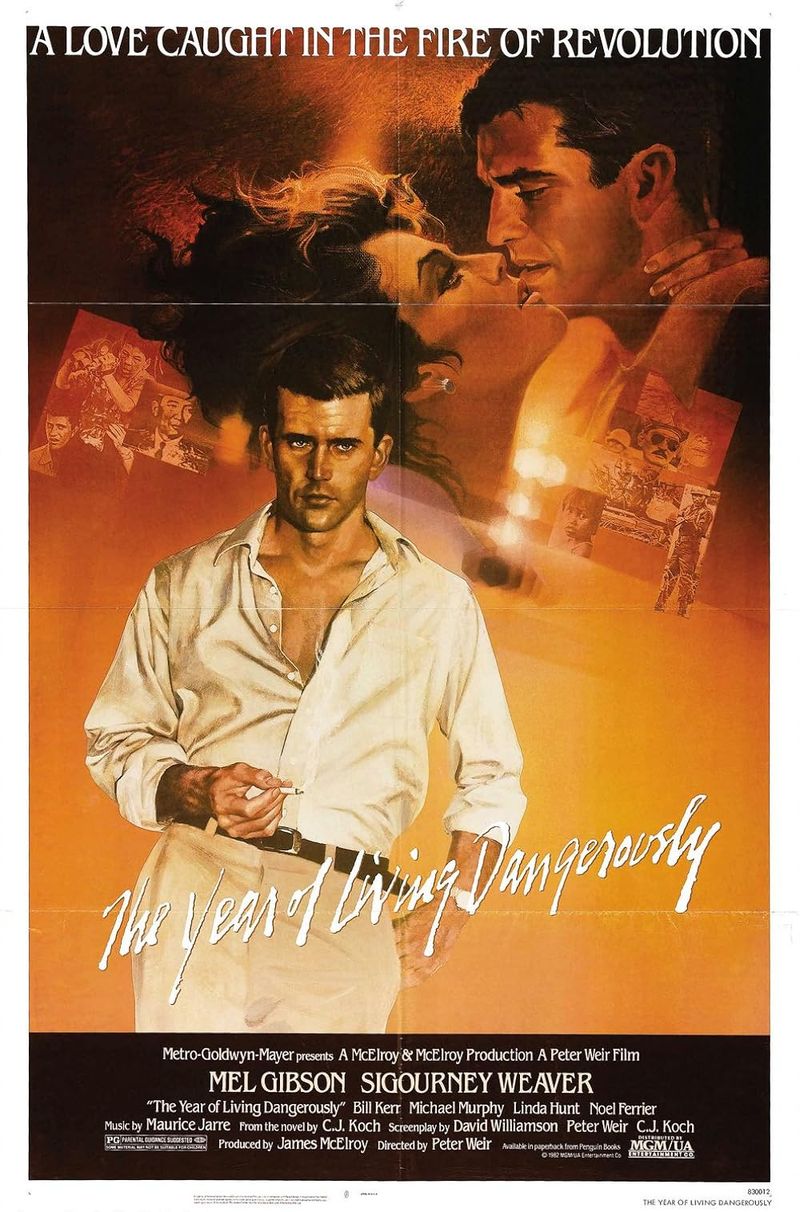
In “The Year of Living Dangerously,” a foreign journalist navigates the political unrest in Indonesia during the mid-1960s. The film follows Guy Hamilton, an Australian journalist, as he delves into the complexities of covering a volatile regime.
The narrative explores themes of loyalty, morality, and the challenges faced by journalists in precarious situations. It offers a poignant look at the ethical dilemmas encountered when reporting from conflict zones.
This film is an evocative exploration of the personal and professional risks inherent in international journalism.
13. Veronica Guerin (2003)
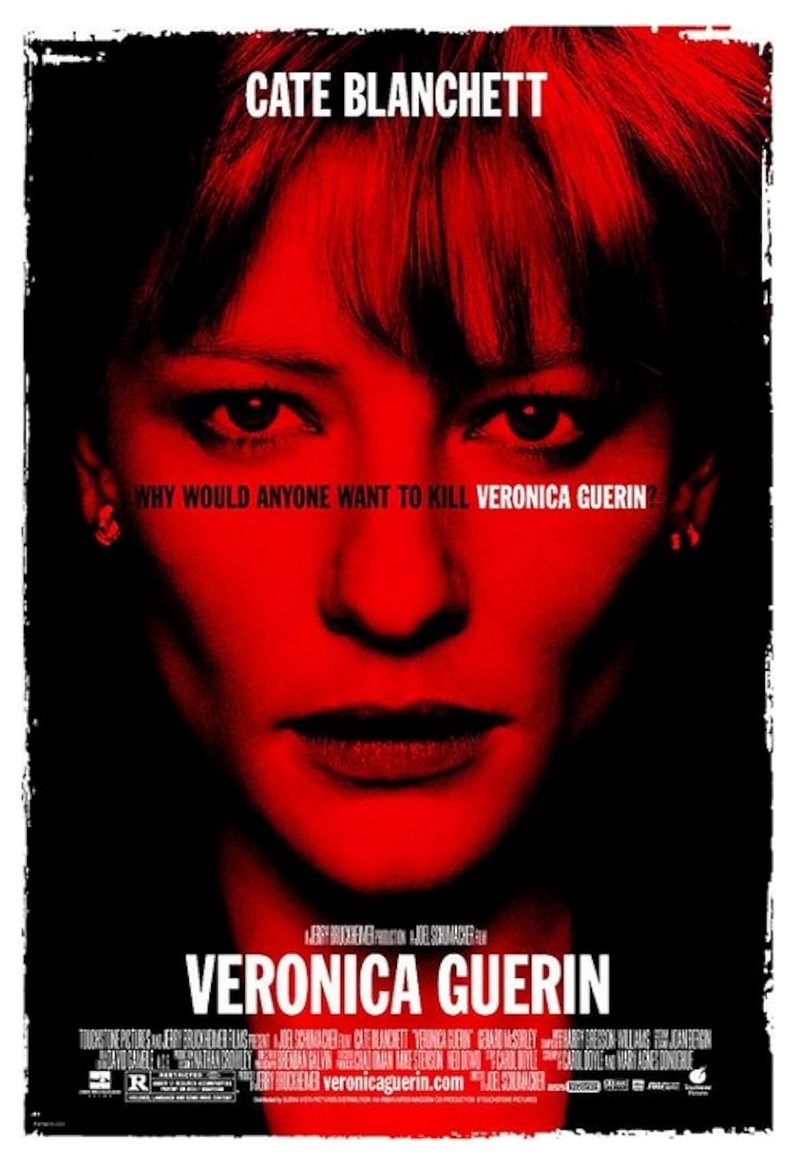
“Veronica Guerin” is a riveting account of the fearless Irish journalist who took on the Dublin drug lords in the 1990s. Her relentless pursuit of justice and truth put her in direct confrontation with dangerous criminal elements.
The film captures Guerin’s bravery and the significant impact of her reporting on society. It presents a poignant narrative of the risks journalists face in pursuit of their stories, especially when confronting powerful adversaries.
Veronica Guerin’s story is an inspiring testament to the courage required in the face of formidable challenges.
14. The Paper (1994)
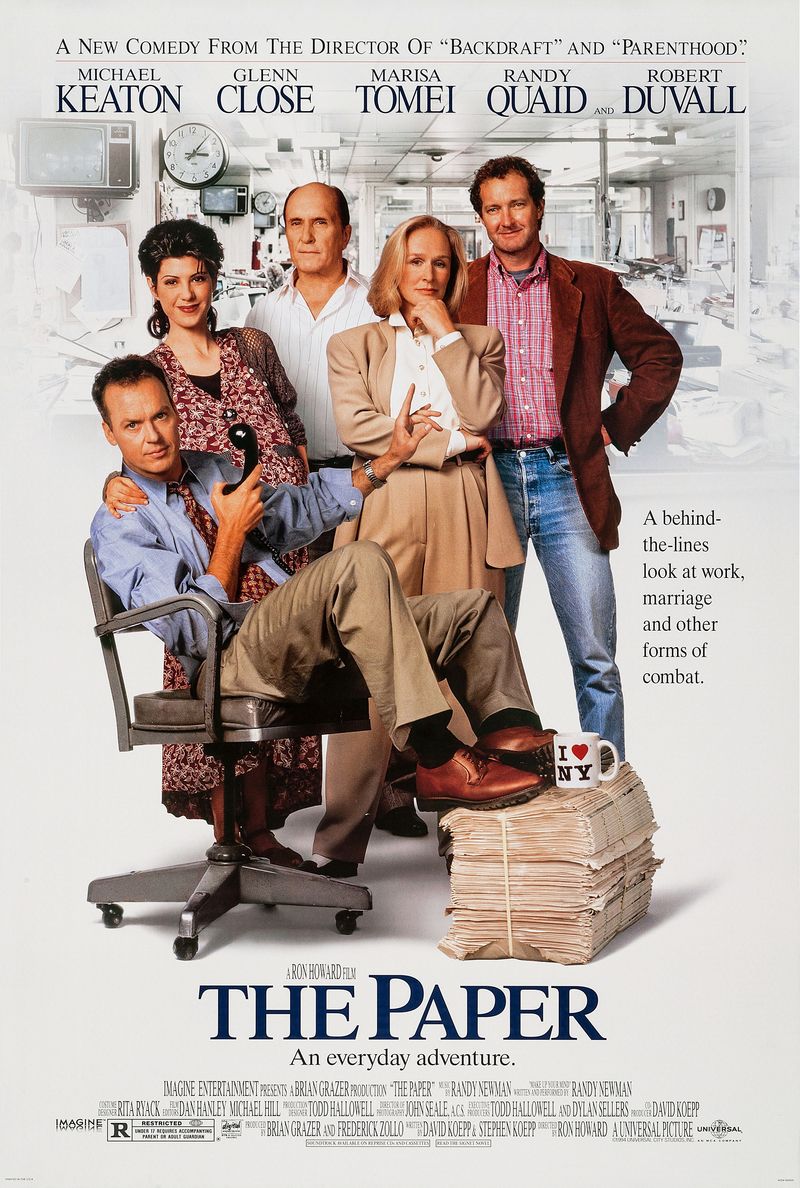
“The Paper” offers a lively glimpse into the fast-paced world of a New York City tabloid’s newsroom. The film follows Henry Hackett, an editor caught between professional obligations and personal dilemmas.
With its ensemble cast and humorous undertones, the film captures the hustle and bustle of daily news life. It showcases the dedication and camaraderie among journalists as they chase the next big story.
This film is a celebration of the spirited nature of journalism and the vibrant personalities behind the headlines.
15. State of Play (2009)
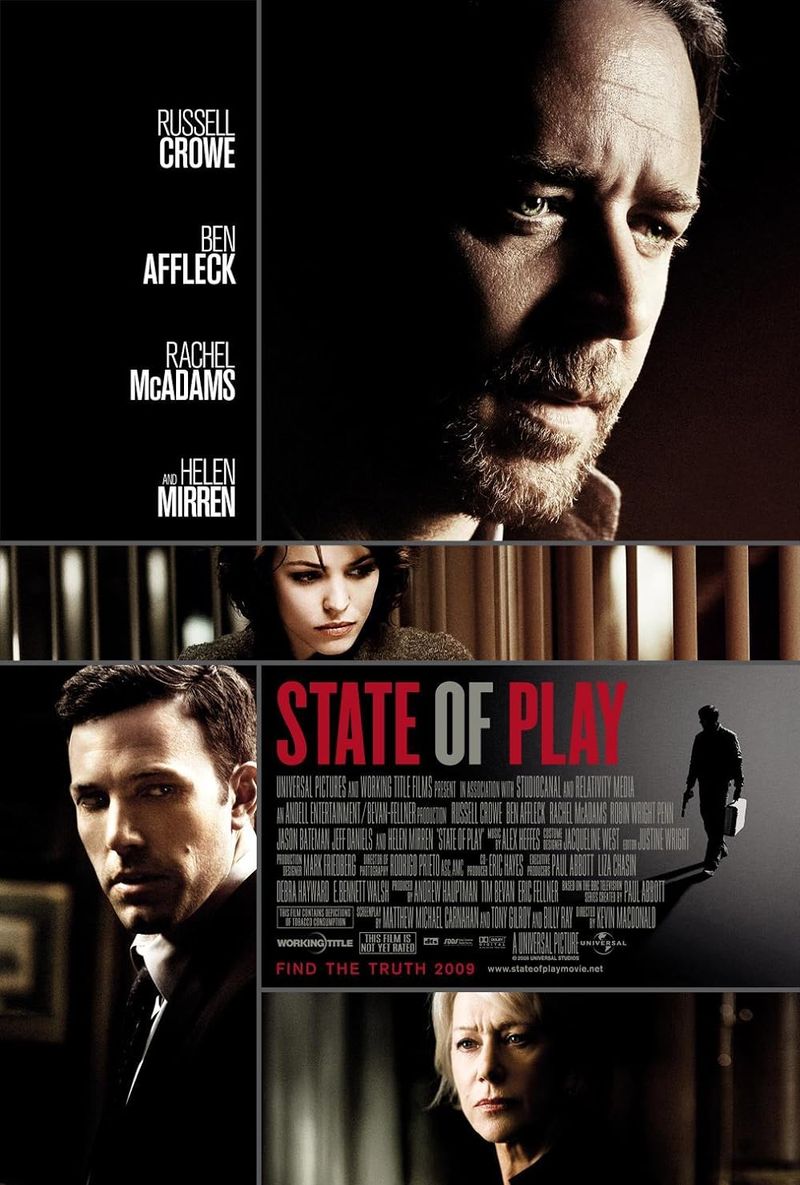
“State of Play” is a political thriller that delves into the murky waters of political corruption and journalistic integrity. The film follows reporter Cal McAffrey as he uncovers a complex conspiracy involving a congressman.
With its taut narrative and suspenseful pacing, the film highlights the intricate relationship between the media and politics. It explores the challenges reporters face in revealing uncomfortable truths.
This film serves as a reminder of the crucial role journalism plays in a democratic society, holding power to account.

Comments
Loading…